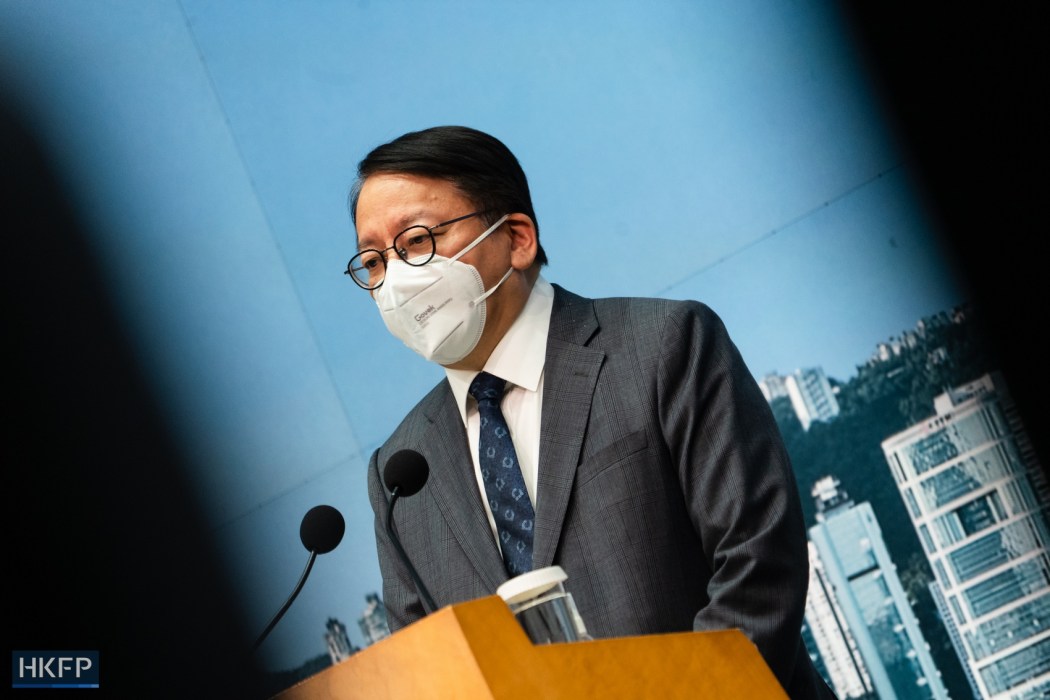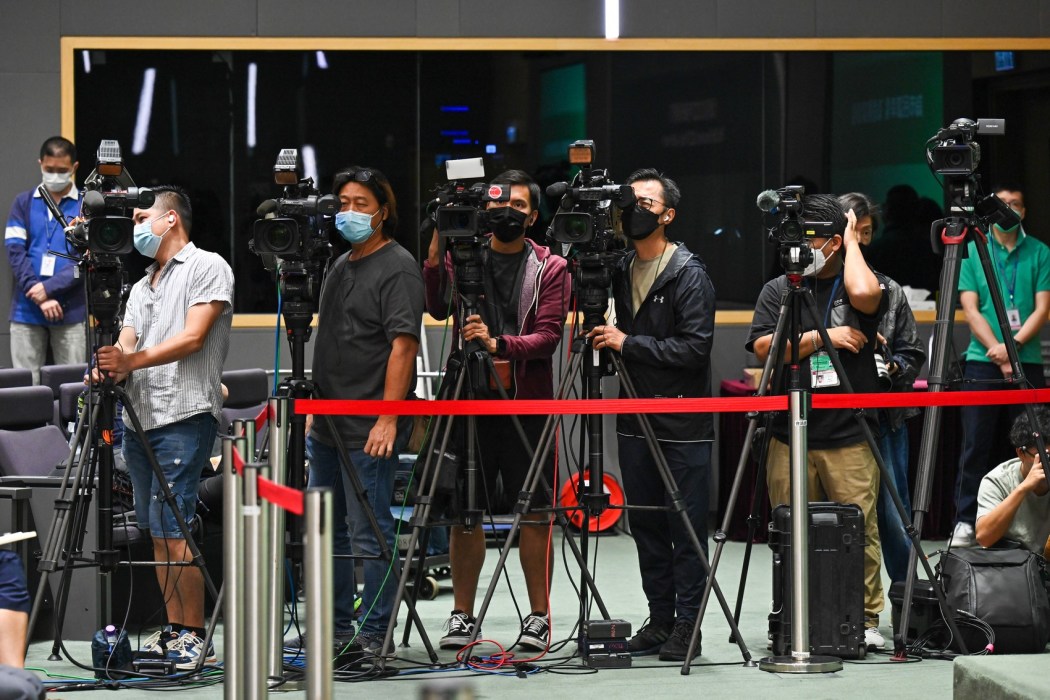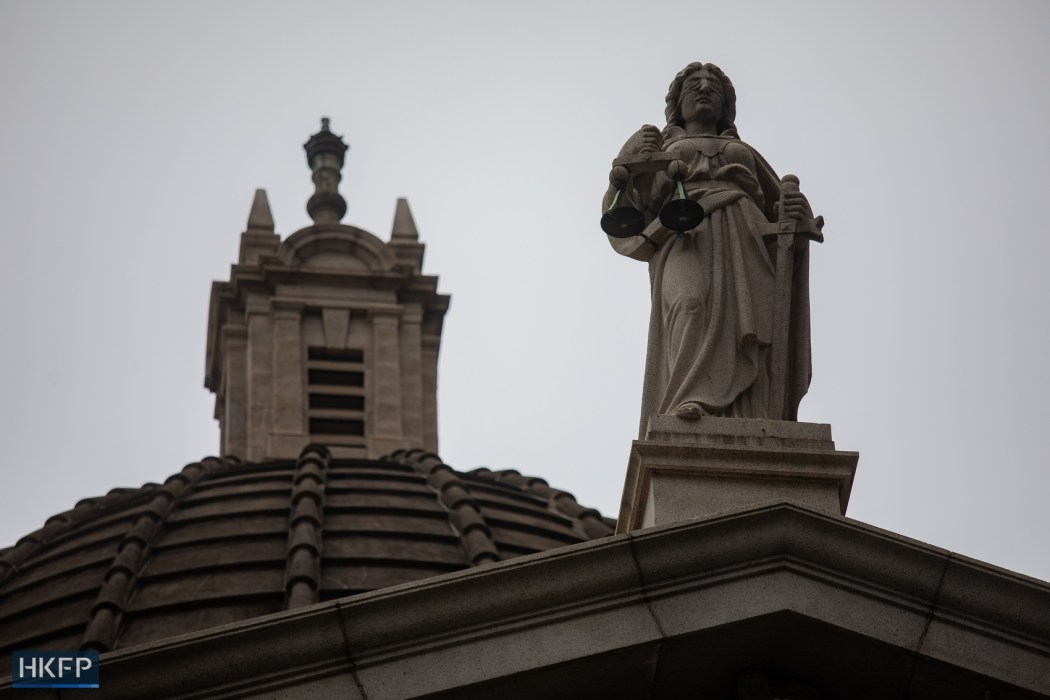There is no conflict between the media’s journalistic work and the Beijing-imposed national security law, Chief Secretary for Administration Eric Chan has said.
The protection of press freedom was stipulated in the sweeping security law and the Basic Law, said Chan in an interview with RTHK last Sunday. However, “the freedom of fake news” was not protected, the city’s No. 2 official added.

Chan’s comment came after Chief Executive John Lee said last Thursday that the government might drop plans for a “fake news” law.
Lee said at the time that the administration would not introduce fake news legislation if the problem was manageable through self-discipline and industry ethics.
The government first mulled plans to legislate against fake news and false information in 2021. At the time, the administration told lawmakers that they were conducting a study of similar legislations in other countries.
“Just now you asked: is it okay to criticise the government? It is completely fine. Every day there are people criticising the government, it’s non-stop,” Chan said. “It’s completely fine to disagree with a policy or have a different opinion.”
The chief secretary for administration added that criticising the administration was “completely irrelevant” to the four offences outlawed under the security legislation – secession, subversion, collusion with foreign forces and terrorism.
“Ordinary media or journalists do not have to worry that normal journalistic work will face interference,” he added, without explaining what he meant by “ordinary” journalism.

In June 2020, Beijing inserted national security legislation directly into Hong Kong’s mini-constitution – bypassing the local legislature – following a year of pro-democracy protests and unrest.
The move gave police sweeping new powers, alarming democrats, civil society groups and trade partners, as such laws have been used broadly to silence and punish dissidents in China. However, the authorities say it has restored stability and peace to the city.
Hong Kong also had an independent judiciary which helps gatekeep the execution of the security law, the chief secretary said.
“The judicial power of Hong Kong’s judiciary is very independent. You can see that the government does not win every single time, sometimes [we] lose,” said Chan.

“It shows that sometimes when the government is wrong in the execution of the national security law, it eventually goes to and is decided by the court. Actually there are several checks, the Department of Justice will look into it, and the court will check again. There is also an appeal mechanism and other things.”
Currently no one charged under the Beijing-imposed legislation has been acquitted.
Hong Kong has plummeted in international press freedom indices since the onset of the security law. Watchdogs cite the arrest of journalists, raids on newsrooms and the closure of around 10 media outlets including Apple Daily, Stand News and Citizen News.
Over 1,000 journalists have lost their jobs, whilst many emigrated. Meanwhile, the city’s government-funded broadcaster RTHK has adopted new editorial guidelines, purged its archives and axed news and satirical shows.
See also: Explainer: Hong Kong’s press freedom under the national security law
In 2022, Chief Executive John Lee has said press freedom was “in the pocket” of Hongkongers but “nobody is above the law.” Lee has also told the press to “tell a good Hong Kong story.”
Support HKFP | Policies & Ethics | Error/typo? | Contact Us | Newsletter | Transparency & Annual Report | Apps
Help safeguard press freedom & keep HKFP free for all readers by supporting our team
























